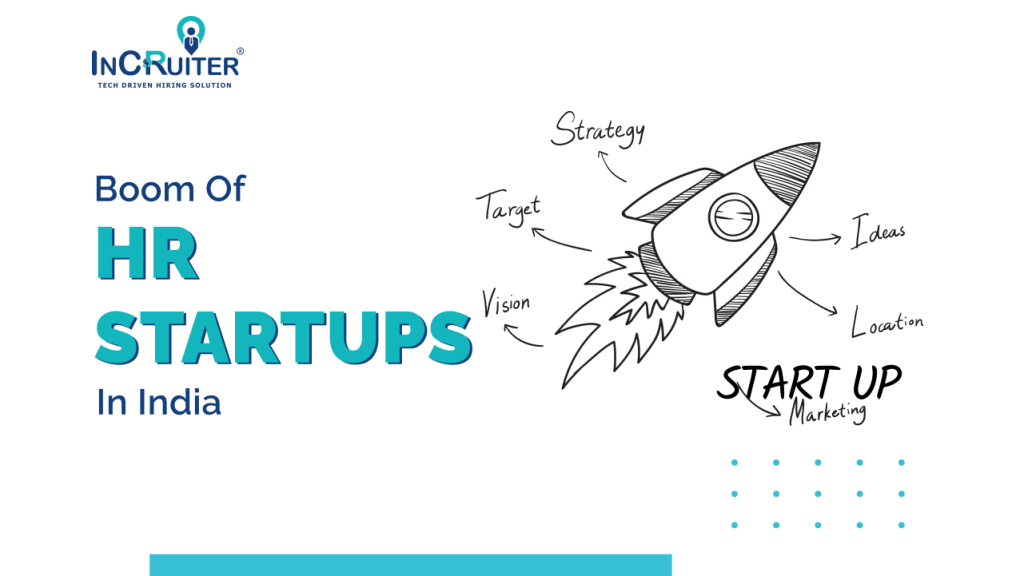
Over the recent years, India has seen an increase in the number of startups in all sectors. One such industry, rightly so, are recruitment agencies. As companies, big and small, shift their focus from simply money-making, to providing a healthy and encouraging environment for their employees, staffing agencies have risen to the occasion and proved themselves to be highly effective for business in the short and long run. The role of HR companies in the market is quite versatile. HR startups have branched out to provide a range of staff services.
Here, we’ll discuss a few reasons why exactly we’ve seen a boom of HR startups in India. Remote Work = Employees / Infrastructure As companies start saving on infrastructure expenditure, there becomes a higher budget available for employee welfare. Companies start to spend more on hiring and retaining their employees. Once the digital revolution had dove face-first into India, companies needed employees much more than ever. Sometimes companies find themselves in a predicament in which they have to onboard multiple candidates at once. When a company needs a large number of employees to be hired for any particular reason it becomes extravagantly difficult to do justice to the task. What to do then? HR companies to the rescue!
Employee Satisfaction comes into the picture
As employees become the main focus of attention, their wellbeing and job satisfaction become of utmost importance. Companies are now ready to spend more to ensure that their employees are looked after. Making available resources that keep them motivated and prevent burnout during the pandemic requires the help of expert professionals. Bridging the gap between company and human contact, these HR startups provide a quality service that brings in a touch of humanity into the now harsh business environment
New businesses might need temporary HR help
We’ve established that HR is an important part of any organization. But here’s the truth. For new businesses and for those with minimal budgets during the pandemic, hiring full-time help to get on board with the rest of the time might be too much to ask. Some businesses simply cannot afford it. That’s when they decide to work with an HR company to outsource tasks for those specific HR services they require. Once the task is over and the outcomes are achieved, the two companies part ways, both having benefited from the temporary partnership. As this pattern becomes more normal, HR startups are encouraged.
HR Tech finds it place
HR Tech used to be limited to white-collar jobs that require technical expertise. They served a niche market, which excluded a huge part of India’s workforce. But with remote work, one of the greatest outcomes was that blue-collar jobs got more recognition in the tech space. To control and provide for these unregulated recruitment markets, we saw the development of many websites and apps that help companies hire, and workers find jobs. With technologies like AIML and HRMS, recruitment and management of employees are far more effective than they used to be. As offshoring becomes a common workplace practice, HR Tech is required for support more than ever. Additionally, HR Tech finds support in the fact that most of India’s up-and-coming workforce is under 35. This means they are equipped with the technical skills required to work well with HR Tech, as the hiring party as well as the party looking to be hired. However, since most businesses are in the process of saving costs and don’t want to outsource all HR functions, the new HR startups actually have a very specific focus.
Also Read: Hiring Platform For Startups
Crowdsourcing
One of the worst unprecedented outcomes of the pandemic was the layoffs. Many people lost their jobs, and the majority of the employed workforce continued to feel unsafe about their employment status. As the number of freelancers increased in the market, there came an increasing need to connect these freelancers to potential clients. This connection, bridged by many of these HR startups, helped people maintain their daily lives, while at the same time allowing companies to get work done without committing to a worker with a contract. With crowdsourcing, HR companies look up their records of shortlisted candidates with potential and recommend them all to the employer. The employer then gets a crowd to pick the best out of.
Interview as a service
While most traditional businesses do have the impression that the role of HR companies is to help simply with hiring in the sense of providing a list of or recommending potential candidates, HR startups do provide other standalone services like on-demand interview services. Providing interviews as a service helps businesses save the time, effort, and money spent during the interview stage of a hire. As HR companies are equipped with the knowledge and skills of being able to determine which candidates are fit for a job, it saves the employer the effort of being trained for taking interviews. Additionally, HR departments in companies are not always equipped with the technical knowledge required to quiz a candidate during an interview. Technical interview outsourcing helps with that.
Challenges to HR Startups
There’s no rainbow without a little rain. And so, despite all these obvious advantages to HR startups in the current business environment, there are some challenges that they must face and navigate through. Firstly, many businesses experience a freeze in their HR budget. This means that even when they have the requirement for HR services, they often need to resort to asking their employees themselves to carry out the services free of cost. As unfair as it is, it’s the harsh reality. Another big drawback is the freeze in hiring. Unfortunately, many companies believe they can save money and eventually the business by laying off workers. This means there is stagnancy in the market sector that is hiring. Another unprecedented challenge is that when hiring opportunities are made available, it has become harder for HR companies to select the right candidates. As telephonic interviews and video conferences become the main methods of evaluation, they might miss out on great candidates with limited technical expertise.
Also Read: Ever-growing demand for interview-as-a-service market post pandemic
Are HR companies still useful?
The answer is plain and simple; yes. HR companies will always be an important asset to any organization. Employees are not the right place to cut costs. HR companies are capable of equipping businesses with the right people so that they can “hire as the company they wish to be and not as the company they are.”
Ready to Transform Your Hiring Process?
Discover how our AI-powered interview platform can streamline your recruitment and find the best candidates faster.






